Head bowed, white boubou robe billowing in the breeze, Badomou Dara trudged over what remained of his house in Kara, a small mud-built village in Mali’s central Mopti region.
His door and iron-sheet roof were missing; his granary was a mound of rubble on the floor. In his hands, the 59-year-old held out a pile of charred groundnuts he had cultivated, before crumbling them into dust.
“It is painful to look at,” he said.
Besides one stoic village chief who sat sharpening his knife on a rock under the baking sun, there is nobody left in Kara. Everybody else fled the ethnic Dogon village one morning in May when armed men from the neighbouring village – populated by Fulani herdsman – climbed over a sand dune shooting wildly in the air.
Everything of value was stolen; the rest was burnt.
Kara is just one among dozens of villages looted and torched in the past few months as a conflict between armed members of Mali’s Dogon and Fulani communities ripples through the heart of the country, claiming hundreds of lives and displacing thousands of people.
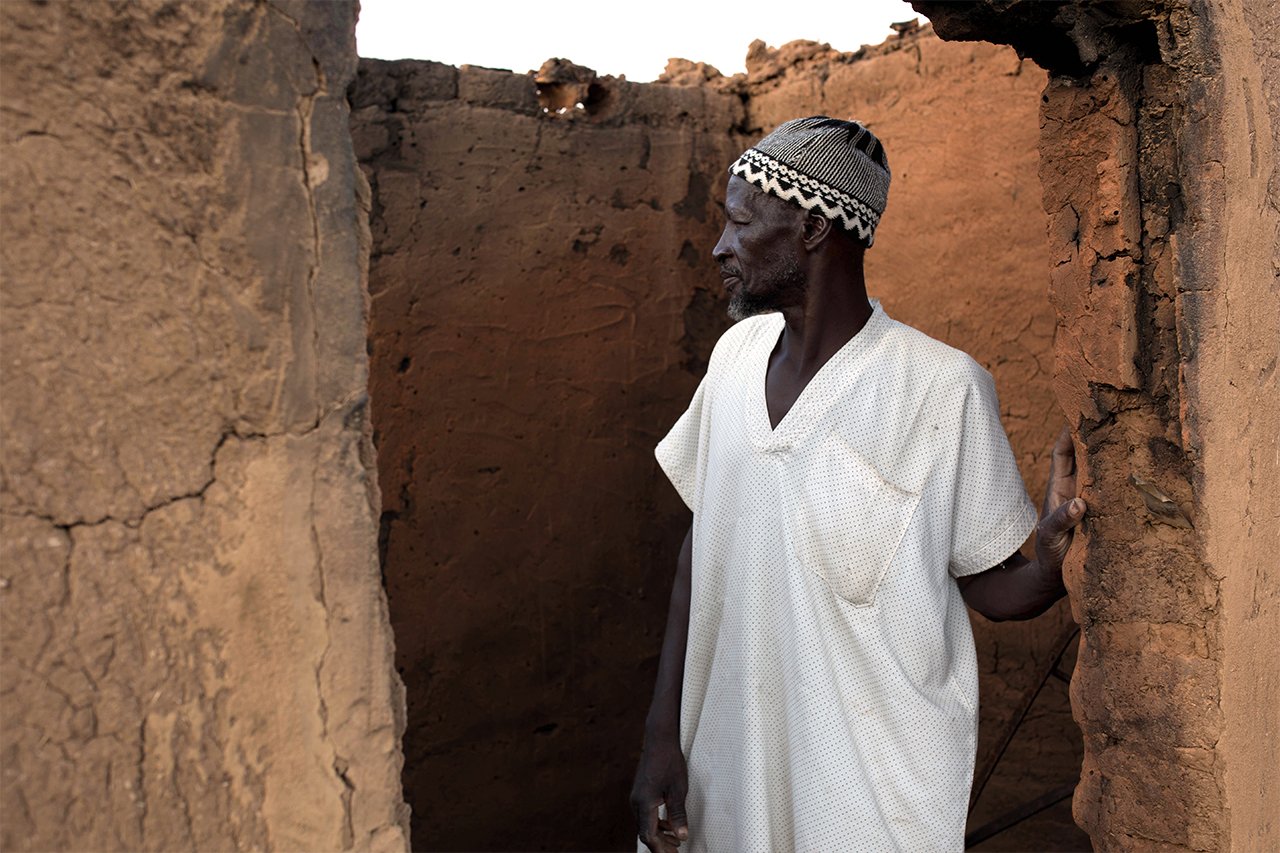
Analysts say the conflict has been triggered by the increasing presence of jihadists linked to al-Qaeda in central Mali. They have recruited heavily among Fulani herders, fuelling distrust with other ethnic groups, including the Dogon, some of whom have organised into abusive new self-defence militias.
“Both sides are killing each other,” said Fatou Thiam, head of the Mopti office of the UN peacekeeping mission in Mali, known as MINUSMA.
The conflict underscores Mali’s struggle to restore order three years after a peace deal was signed between the government and armed groups in the north, including separatist Tuareg rebels, who seized large parts of the country following a 2012 military coup in the capital, Bamako.
Islamist militants, who joined forces with the separatists before a French-led intervention pushed them back, have gradually expanded their sphere of influence from the desert north into Mali’s previously peaceful centre.
This year 5.2 million Malians are in need of humanitarian assistance, compared to 3.8 million in 2017. The number of internally displaced people has also doubled since January to 75,000, according to the UN’s emergency aid coordination office, OCHA, the majority in the central Mali.
In July, militant groups forced the closure of hundreds of polling stations during the first round of presidential elections, eventually won by the incumbent, Ibrahim Boubacar Keïta, 73.
Thousands of Western and UN troops deployed in the country have been unable to prevent the situation from deteriorating.
“Mali and the international community have been outpaced by the Islamists’ clever strategy,” said Corrine Dufka, West Africa director at Human Rights Watch. “Notably how they’ve exploited local grievances, weak state presence, and long-seated ethnic tension to expand their sphere of influence.”

Villages burnt, villagers starving
Before the emergence of jihadism, the social fabric in central Mali was already fragile. For decades weak governance and competition over land and water caused lingering conflicts between the Fulani pastoralists, who move their herds across the region, and largely sedentary Dogon, Bambara, and Songhai farming communities.
Those tensions were exacerbated by the rise of jihadist groups in the centre, including the Macina Liberation Front led by an influential radical preacher known as Amadou Koufa, and Ansaroul Islam, a Burkinabe Islamist group that uses southern Mopti as its rear base. New Fulani self-defence groups have also emerged in recent months.
Analysts say the jihadists have deliberately stoked ethnic tension to drive recruitment and legitimise their presence. Local government officials and respected members of the community are systematically targeted in anticipation the Fulani community – most of whom deny supporting the jihadists - will face collective punishment.
“Then the jihadists swoop in and present themselves as the Fulani’s protectors,” said Dufka.
In a part of Mopti popularly known as Dogon country, this strategy began as early as 2015, when the jihadist’s presence was still embryonic. The killing of a well-known Dogon hunter called Theodore in Segue village sparked particular outrage among the local Dogon community.
But this year the violence has risen to a whole new level as armed Fulani men, who many believe to be the jihadists, have gained strength; restricting Dogon communities from accessing fields and local markets, stealing livestock, and attacking villages.
“They wouldn’t let us do anything until they finally chased us away,” said Amadime Kodio, 73, from Kara.
Doguel Kodio (no relation), 38, from nearby Enema, said militants stormed his village for two hours one afternoon in May. His wife and eight children lay pressed to the floor of his single-room mud house as gunfire echoed through the village.
After the attack the villagers fled, finding, on the outskirts of town, the corpse of a middle-aged Dogon man shot through the temple. The next day the attackers returned, Kodio said, to loot village granaries and burn down houses.
“There was no door they did not kick down, no house they didn’t set on fire,” he said.
Prevented from accessing their fields by jihadists, many Dogon are now also dying of hunger. Earlier this month, the World Health Organisation and Mopti’s regional health department began investigating the spread of what local media had characterised as an unusual disease in three Dogon villages in Mondoro commune.
A report by the health department, seen on 17 August by IRIN, said at least 35 people, predominantly women and children, had died and 224 people had fallen ill since 15 March from what is now believed to be severe acute malnutrition. Improvised explosive devices have also been planted around the villages by “armed men ready to shoot anyone caught outside”, the report says.
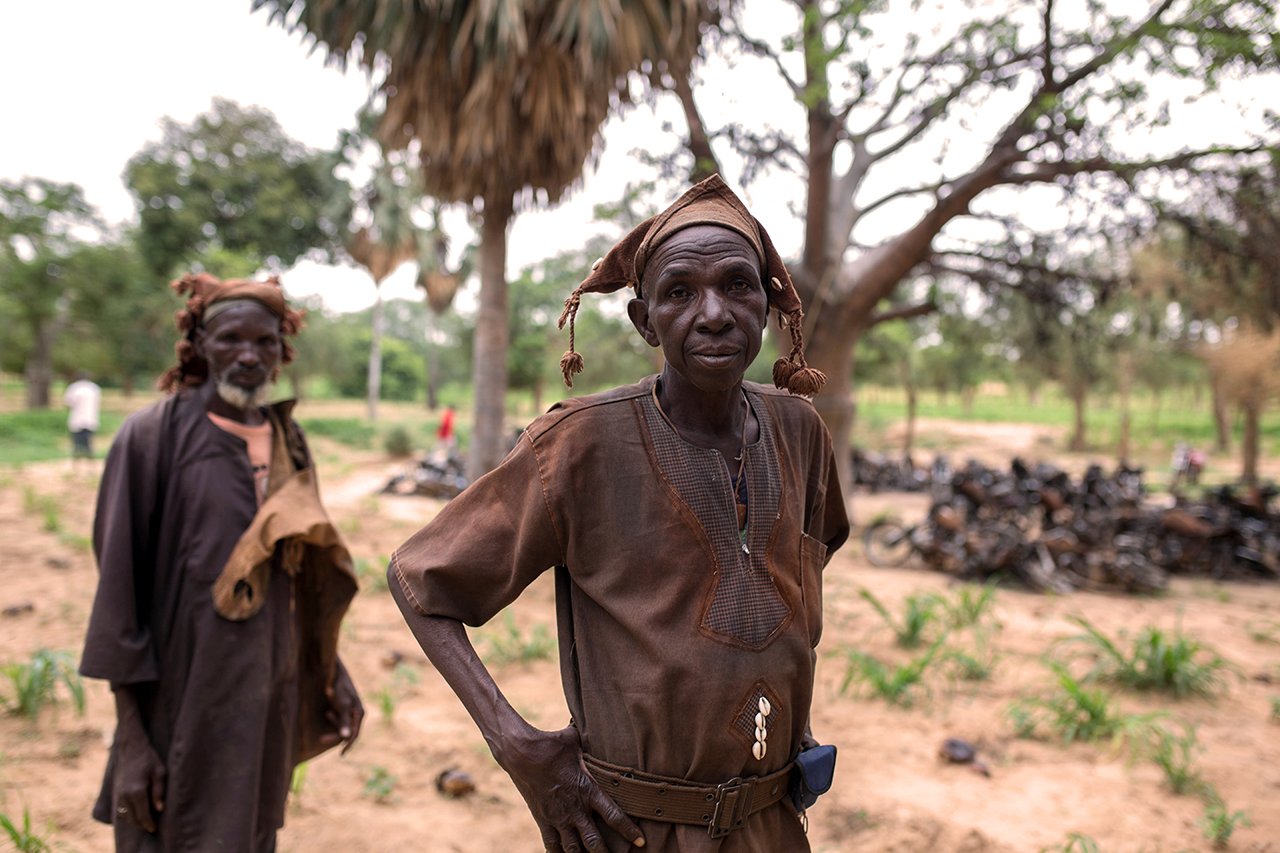
Hunters unite
Convinced the state cannot protect them, traditional Dogon hunters, known as Dozos, have decided to fill the void themselves, forming a new self-defence militia they call Dana Amassagou, which translates roughly as, “hunters in God’s hands”.
The group is responsible for a string of indiscriminate attacks on Fulani civilians and is alleged to have received weapons and training from the Malian government. Fellow Dozos from the Ivory Coast and Niger are also believed to have joined their ranks.
Support from the Dogon community itself is mixed however, with many accounts of Dogon chiefs and civilians protecting their Fulani neighbours against the hunters.
The national coordinator of Dana Amassagou, 47-year-old David Tembine, denied pre-emptive attacks on Fulani villages and civilians, and said the group signed a ceasefire in mid-July.
“The Dogon never attack,” he said from a restaurant in Sévaré, north of Mopti town. “The Dogon defend themselves”.
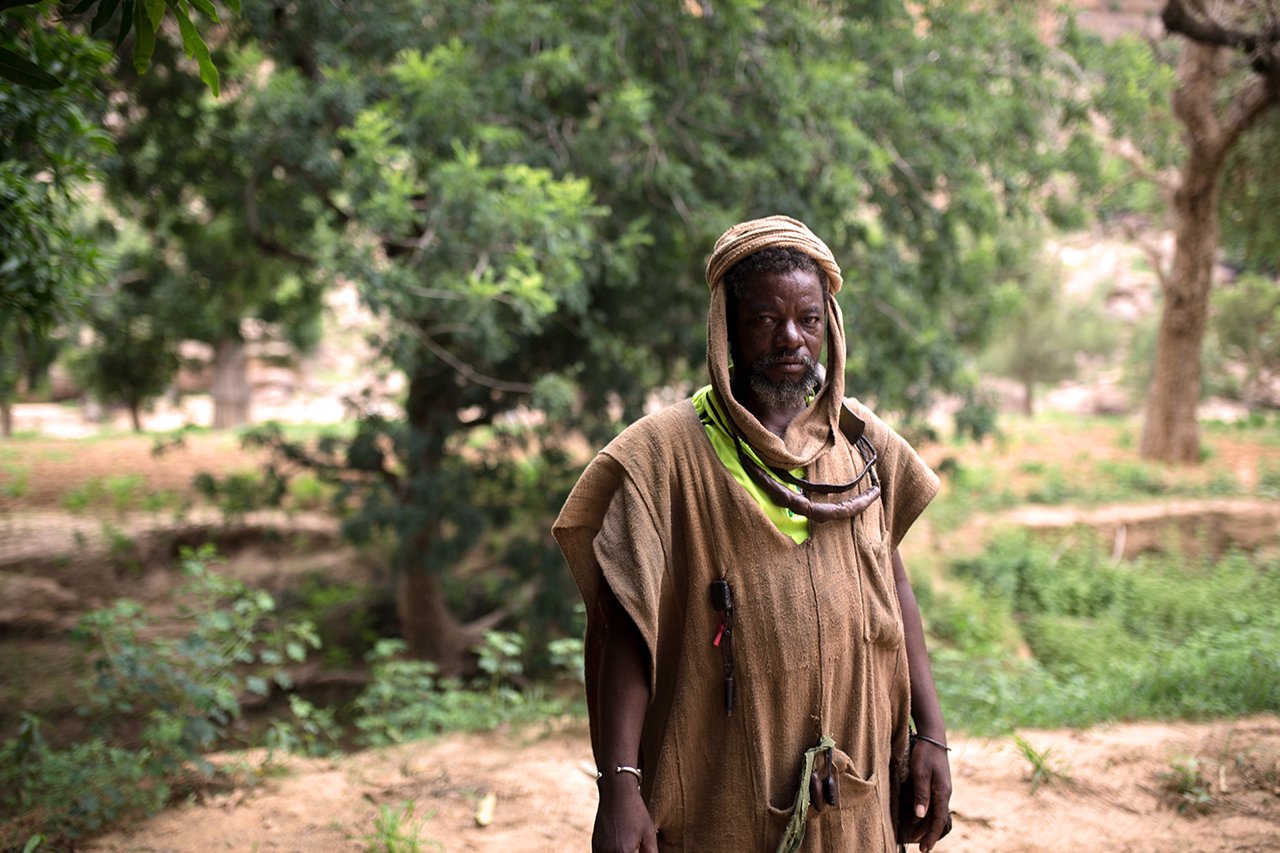
But the ceasefire agreement is thought to have caused a split in the Dana Amassagou ranks, with many leaders rejecting it.
In person, the Dozos are far less diplomatic. IRIN met 50 of them during a rare encounter with international media, sat under the shade of a mango tree at a base outside a village called Walià.
They wore dirty brown ponchos with ammunition belts tied around the waists. Their weapons included scythes and sticks and artisanal hunting rifles that leant against the tree’s thick trunk.
The hunters say they never wanted to fight; that their goal is for Dogon country “to be like what it was before” – a world heritage site that attracted tourists from around the world.
But their activities no longer resemble the work of a self-defence group. They now accuse all Fulani communities of harbouring the jihadists (“it is like they are their parents”) and the most vocal of them, Mamadou Poudiougo, 44, has come to a radical conclusion: “We will have peace only if the Fulani are not around”.
“I never want to see anything like this again”
It is not an empty threat. In Bankass, a dust-blown town in southern Mopti, thousands of Fulani have been forced to take refuge in the courtyard and classrooms of a local school. Interviews with chiefs from seven separate villages paint a picture of brutality at the hands of the Dozo, who have killed scores of civilians and burnt down dozens of villages and hamlets.
In Gueourou, 56-year old Aly Boly said 17 people were killed in his village during an attack shortly after morning prayers one Monday morning. Sixteen of the dead were men – shot while fleeing the village – the other was a baby boy, accidentally left in a burning hut during his own naming ceremony. He died before receiving one.
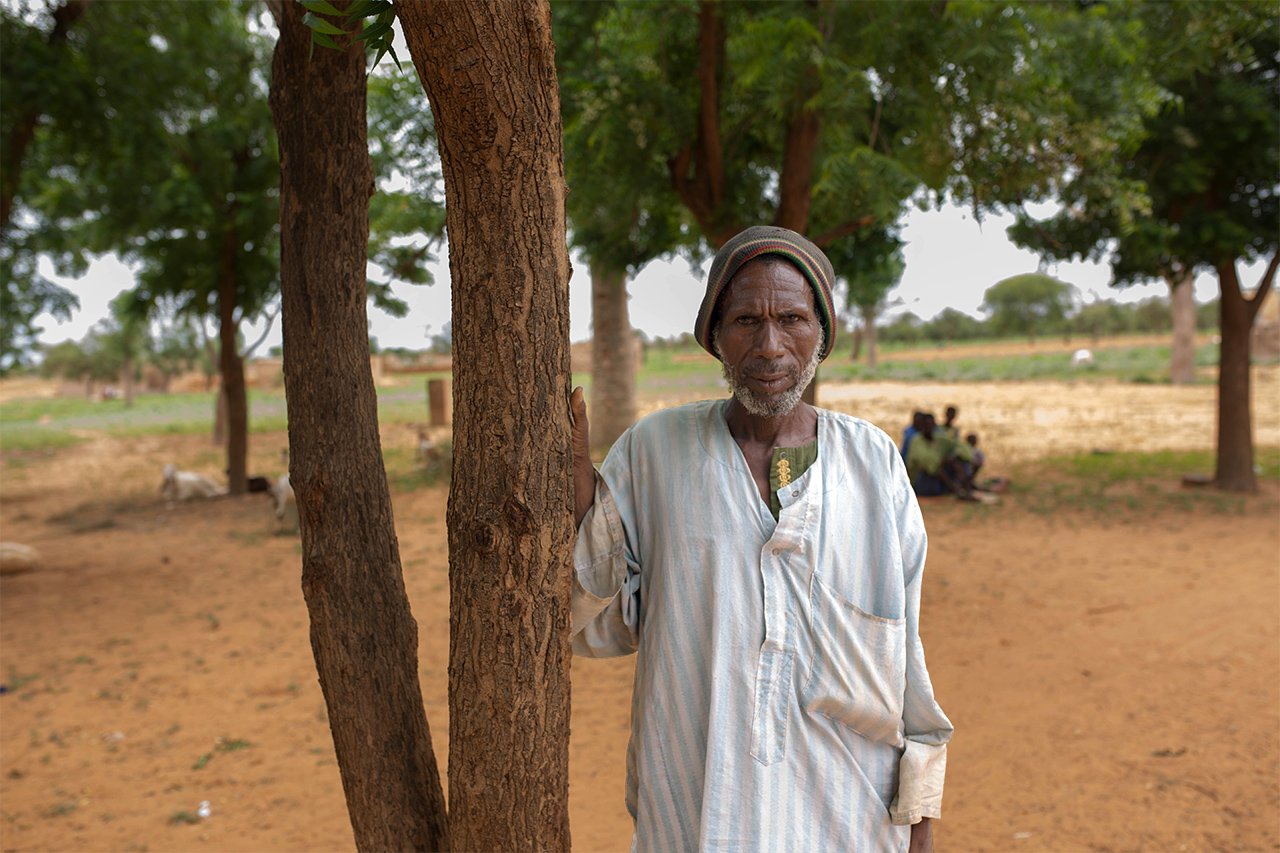
“I never want to see anything like this again,” Boly said.
Amadou Barry, a village chief from Dialou-Guel told IRIN he received a personal visit from a group of hunters one morning in mid-May telling him the Fulani would have to leave. Barry asked them why, “but they didn’t give a reason”, he said. “They just told me: ‘Fulani we find, we will kill’”.
As the residents packed up their belongings, Barry tasked five of his children, aged between 13 and 24, to shepherd the village’s cattle by foot from Dialou-Guel to Bankass. But in a nearby village called Tenssagou his children were ambushed by hunters. The cattle were taken; the children killed.
“I have lost everything,” Barry said.
Analysts say young Fulani in Mali are joining the jihadists not out of religious conviction but out of desperation in the face of bad governance, corruption, and, more recently, state and militia abuses. This year Malian defence forces were implicated in a string of mass atrocity crimes against Fulani after a series of mass graves were discovered in Mopti in June.
The Macina Liberation Front (FLM) – which seeks the revival of the 19th century Macina Empire, a theoretic Muslim state which existed in modern-day Mopti – has wreaked havoc on Fulani communities too: imposing strict sharia law, closing hundreds of schools, and settling scores with summary killings.
Fulani chiefs told IRIN they now feel trapped between the brutality of the jihadists and the hunters and government forces who accuse them of supporting the groups.
“In our village there is nobody from the FLM,” said Belco Barry, 60, from Sinda. “But still the hunters came and attacked us.”
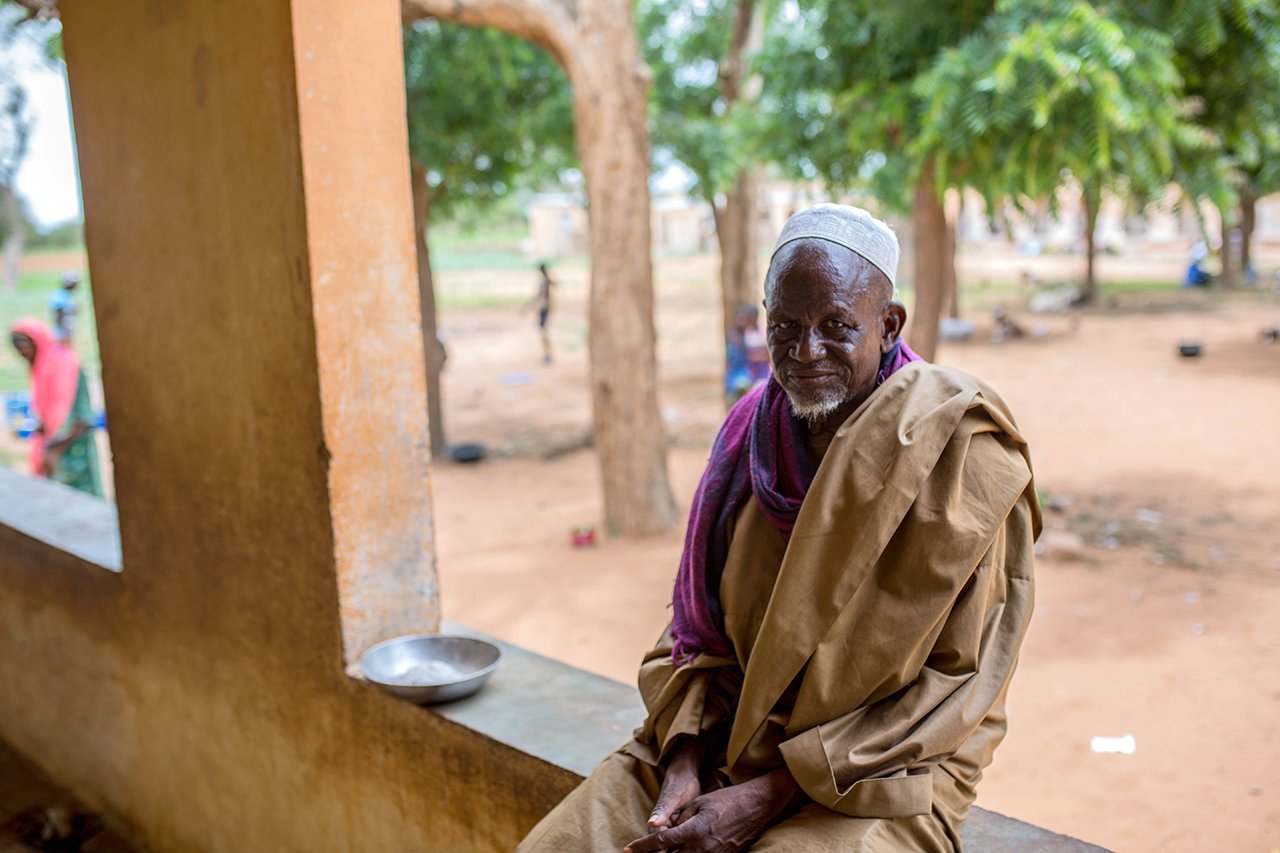
Countering militancy
Since 2013 a medley of international and regional forces have arrived in Mali to try to stabilise the country. The French have a 3,000-strong counter-terrorism force called Operation Barkhane; five West African countries have established the G5 Sahel Joint Force, focused on cross-border security; and MINUMSA has 14,000 troops.
But they are all struggling. The G5 Force, headquartered in Mopti, is barely operational; in June its base in Sévaré town was attacked by jihadists. MINUSMA, meanwhile, has earned the moniker of the most dangerous UN mission in the world.
Until a recent visit from UN Secretary-General António Guterres, MINUSMA’s Security Council mandate did not even cover the centre of the country.
“Everything was focused on the peace agreement and the north,” said Thiam, the UN official in Mopti.
MINUSMA’s latest mandate does finally make reference to the centre but makes no provisions for additional resources. The two peacekeeping companies based in the region spend most of their time escorting convoys and protecting UN bases.
A Senegalese rapid reaction force was deployed to Mopti last year but takes its orders from UN headquarters in Bamako and has a mandate that covers all of Mali.
“We don’t have enough resources to show more presence in the field,” said Thiam.
Meanwhile, the jihadists keep getting stronger. Last year the FLM became part of a wider al-Qaeda-affiliated organisation called Group for the Support of Islam and Muslims, or JNIM. Its new weapons of choice are IEDs and car bombs.
As it expands, so does the number of civilians suffering. At the school in Bankass, displaced Fulani keep on arriving – and keep on telling the same story. Lying on a mat on the ground, Oumar Barry from Kanama said Dozo hunters told his community to leave their village a week before.
Hollow-eyed, the village chief, who arrived an hour earlier, said he first fled to neighbouring Birga, where he stood watching on, as thick smoke filled the sky and flames licked over his village, “destroying everything”.
A week later, he looked traumatised. It was as if he was still there, still watching.
pk/ag






